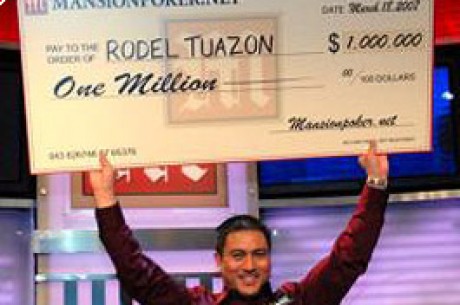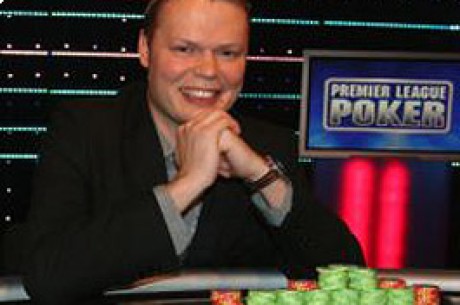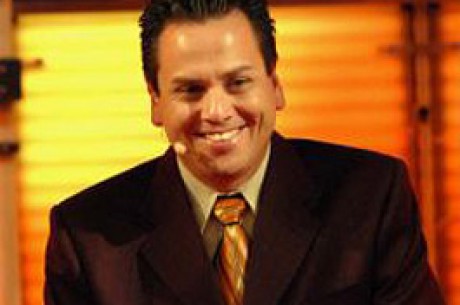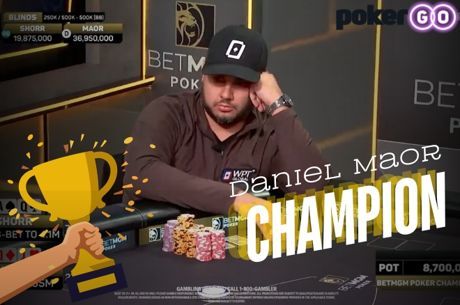New TDA Rules in Play at Bay 101
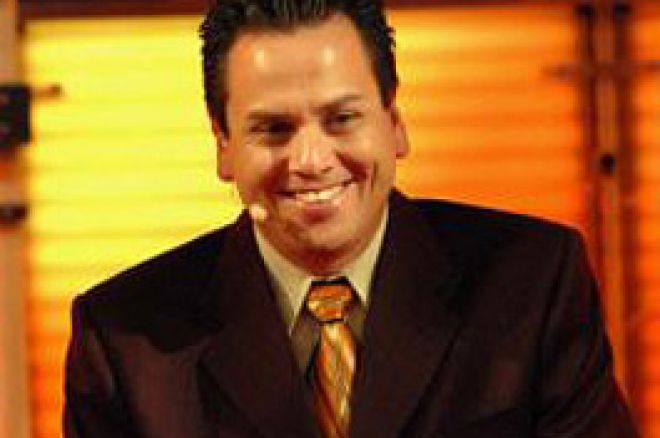
The first major tournament to use the newly updated Tournament Director's Association Rules was the WPT Shooting Star at Bay 101 in San Jose, California. Moments after the Ted Forrest was crowned the 2007 Shooting Star Champion just after 2 AM on March 17th, I caught up with Matt Savage, the Tournament Director of the Shooting Star event and a founding member of the TDA. Matt and I had a chat about how the new rules had worked in their first major tournament test. I asked how the players had reacted to the changes in the rules and just how the enforcement had gone during the five day event.
"We only had four penalties during the entire event and each of the players involved was aware of the change in the penalty enforcement." Matt was referring to a revised TDA rule, which now reads:
Rule #7: A penalty may be invoked if a player exposes any card with action pending, throws a card off the table, violates the one-player-to-a-hand-rule, or similar incidents take place. Penalties will be invoked in cases of soft play, abuse or disruptive behavior. Penalties available to the TD include verbal warnings and "missed hands" penalties. A missed hand penalty will be assessed as follows: The offender will miss one hand for every player, including the offender, who is at the table when the penalty is given multiplied by the number of rounds specified in the penalty; for the period of the penalty the offender shall remain away from the table. Tournament staff can assess one-, two-, three-, or four-round penalties or disqualification. A player who is disqualified shall have his or her chips removed from play. Repeat infractions are subject to escalating penalties.
The change here, of course, is the end of penalties being timed (5 minutes, 10 minutes etc.) with the new rule assessing penalties based on "hands away" from the table.
Matt noted that they used hand counters to assess the penalties. While you might think simply noting the position of the button and having the penalty simply be a circuit of the table is sufficient; a problem arises when a table is broken or when a player is moved to the table during a penalty assessment. Matt pointed out that one of the penalties was given after they had gone to six-handed tables and indeed after three hands the table did break and the penalty continued at the new table for the remaining three hands.
The Tournament Director's Association maintained their primary Rule #1 and Matt gave a clear example of why.
Rule #1: Floor people are to consider the best interest of the game and fairness as the top priority in the decision-making process. Unusual circumstances can on occasion dictate that decisions in the interest of fairness take priority over the technical rules. The floor person's decision is final.
Matt relayed an incident where Joe Sebok was involved along with Robert Williamson III. Robert made a large bet, which Joe thought would cover him, Joe said: "Call" and exposed his cards only to discover that the call left him with a small stack. A turn bet from Joe with his remaining chips ended the hand but Robert showed his small pocket pair and Joe took a peek in the muck for the river card, which meant three rule violations on one hand.
Rule #31: Exposing Cards: A player who exposes his cars with action pending may incur a penalty, but will not have a dead hand. The penalty will begin at the end of the hand.
Rule #36: Etiquette Violations: Repeated etiquette violations will result in penalties. Examples include unnecessarily touching other players cards or chips, delay of game, and excessive chatter. Going into the muck is an etiquette violation.
Rule #21: No rabbit hunting is allowed.
Rabbit hunting for the uninitiated is looking at the turn or river card when the hand has finished prior to those cards being exposed.
Matt's decision was to assess one penalty to Joe for the exposed cards and not to multiple the offenses for what originally was an unintentional mistake. Rule #1 was the guiding principle here.
Another rule that generated a lot of player discussion was the new rule on 'No Disclosure.'
Rule #12: Players are obligated to protect the other players in the tournament at all times. Therefore, players, whether in a hand or not, may not:
1. Disclose contents of live or folded hands;
2. Advise or criticize play before the action is complete;
3. Read a hand that hasn't been tabled.
It would seem that players were not clear on just what comments could or should be allowed while a hand is in play, which is precisely why the rule was created. Be careful; loose lips could send you to the rail.
Finally, the players seem to be in almost complete agreement on the new tightly enforced rule on cell phones.
Rule #15: Communication devices: A player may not use a cellular phone, text-messaging device, or other communication device at the table.
The enforcement of rule #15 is simple; if you use any such device your hand is dead. No more, 'I was just reading email' or 'I was checking the time.' Use it and lose it is the new rule.
The adoption of the new rules at Bay 101 seemed smooth, and as the deadline has now passed for compliance of the new rules by TDA rooms, players should see the new rules enforced from here on out.

